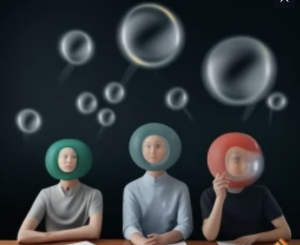Our lives are an endless search—a search for something we call happiness. We continually gain it and then lose it, again and again. And yet, despite its inherently transitory nature, we continue trying to capture happiness, permanently, like a moth in a cage. Permanent happiness is the goal of our life—a goal that we can never reach, at least not in the way we imagine. What we can reach however is a state of well-being, a deep sense of lasting contentment that can include and survive both happiness and not happiness!
Perhaps more than any other idea in our culture, the idea of happiness is most burdened with myths and expectations. It is these myths and expectations about happiness that lead us not to more happiness, but rather to unhappiness and suffering.
When we use the term happiness, we are generally referring to a state in which we like the contents/circumstances of our life; we find our life to be pleasing or pleasurable.
With regard to happiness, we are taught to believe the following:
- I am supposed to be happy
- I am supposed to be happy all the time
- Happiness is the goal of life
- There is something external that will bring me lasting happiness
- I am in control of my own happiness
The most damaging aspect of these myths is that they encourage us to believe that there is always a better moment than this one, a better experience that we are supposed to be having—somewhere else. Our obsession with happiness leads us to imagine that this moment is not enough, not the moment that we should or could be living. The demand for happiness causes us to constantly chase some other now where we will be happy, where it will finally be okay to be there. The problem is that it is never and can never be this now.
We have a billion-dollar self-help industry, which supports these myths—professing techniques that will allow us to always like our life circumstances. We can learn to
1. Control our life so that we always have what we want (the attraction principle) 2. Control how we feel about our life circumstances—make our feelings consistently positive regardless of whether we have what we want (cognitive re-framing/positive thinking). 3. Transcend the entire not happy experience by detaching from the person who is experiencing such feelings.
What is rarely addressed is how to be okay when we are not happy with our life, when we cannot make our circumstances pleasurable and cannot convince ourselves that it is a good thing that our circumstances are not what we want. What is often omitted from self-help is how to be okay in this life as it is, with its uncontrollable ups and down and contradictory feelings . We keep demanding that life be something other than what is and designing more and better programs to work with that imaginary life. What we are not taught, sadly, is how to inhabit not happy, and even more importantly, how to be well AND not happy. These are the skills that we need for life as it actually is.
The main reason that we so fiercely need to stay happy is because of the myths we hold about not being happy. If we do not find our life pleasing, our very identity is threatened. As a result of our not being happy, we are a failure, our life is a failure; our very identity is transformed into something negative. Not being happy has the power to make who we are something undesirable. Such myths about not happiness create tremendous suffering.
With regard to not being happy—not liking the circumstances of our life—we are taught to believe the following:
- I am to blame for not being happy
- I am a failure if I am not happy
- I am missing out on the life I am supposed to have
- I am being deprived of the life that everyone else gets to have
- I have not found/created the thing that will make me permanently happy
Here’s the bad news:
- We cannot always control the circumstances of our life (no matter how hard we try)
- We cannot always control the way we think or feel about our circumstances
- Everything will eventually change
- There is nothing external that will bring us lasting happiness
Here’s the good news: Re-read the “bad news” list.
Why is the bad news also good news? The truth is we really do not nt another plan for how to achieve and hold onto happiness, another better place to get to. We want a place where we can stop chasing, stop getting and losing. We want a place where we can simply be where we are, and most of all, stop searching—for happiness.
And there is more good news! We can be well, regardless of the circumstances of our life. Well-being is not about changing the circumstances of our life so that they are pleasurable; it is not even about changing the way we think or feel about our circumstances. Rather, it is about changing our relationship with our thoughts and feelings—with our own experience. Ultimately well-being is about being able to experience our life, right now, without turning that experience into an identity, positive or negative. Well-being is about being free, not from the experiences we do not want, but within the experiences that we do not want.
There is a state of well-being so infinite as to be able to include even not happy. When this is discovered, we can stop chasing a better moment, better life and better self, and stop blaming ourselves for not being able to capture the wind. At last, we can meet this moment and land here—the only place where well-being and true contentment can actually exist.
From the upcoming book, Inviting A Monkey to Tea: Befriending Your Mind and Discovering Lasting Contentment (Hohm Press, October, 2012).



One Response
Hello, Nancy. I just wanted to say that I like your blog and your thoughts on happiness. Thank you for sharing them.